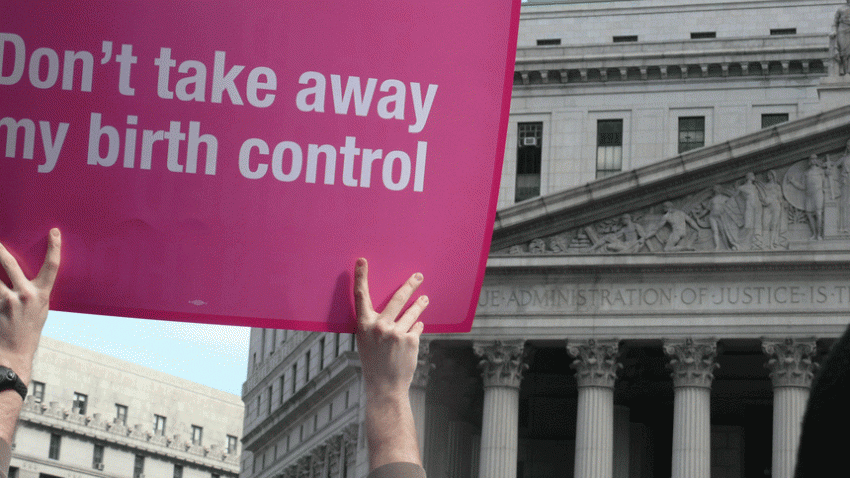
*This post of mine was published on Forbes Woman & The Huffington Post.*
When I was growing up in Bangladesh in the early 1980s, I used to imagine America as a feminist utopia. Before I even stepped foot on her soil, I pictured America as a country where women enjoyed full equal rights, especially when it came to controlling their reproduction.
This had a lot to do with the posters, produced by the United States Agency for International Development (USAID), that were plastered across the walls of Dhaka’s streets and bazaars promoting family planning as a key pillar of women’s empowerment.
This massive US funded public health campaign played a critical role in lowering the fertility rate in Bangladesh post the country’s bloody war of Independence from Pakistan in 1971.

For the most part, it was largely successful. USAID funded programs helped lower the number of children Bangladeshi women were having from an extremely high 6.3 births per woman in 1971, to 2.3 births in 2011. In many ways, the US helped establish access to basic family planning services in Bangladesh.
America has a history of promoting comprehensive reproductive healthcare around the world, so why are American women still fighting for birth control?
Yesterday, the Supreme Court of the United States (SCOTUS) ruled 5-4 that “closely held corporations cannot be required to provide contraception coverage for their employees.”
In the case of Burwell v. Hobby Lobby, the Supreme Court voted that privately owned for-profit corporations, like Hobby Lobby and Conestoga Woods, can refuse to cover birth control in their company’s insurance plans because of religious beliefs.
Despite the anti-contraception movement in the US being separate from the anti-abortion movement, the Hobby Lobby ruling relates to both because it demonstrates how women’s health and rights are continuously compromised in the US.
Just last week, the Supreme Court voted against a law allowing abortion clinics to have a buffer zones. Yesterday the highest court in America told women that our bodies do not belong to us.
But this ruling is not just about American women. It has implications for women around the world mainly because policies made in Washington impact the health and rights of women around the world.
The US is one of the largest donors of global health programs, and often what it promotes at home it advocates for abroad as well, as we saw with abstinence only sex education that skyrocketed during the Bush-era in domestic and overseas programs.
It is also not uncommon for the US to implement policies that would be ruled unconstitutional in the US in its foreign aid programs, one of the best examples being the Global Gag Rule, a deeply partisan policy (Republican Presidents traditionally implement it, while Democratic Presidents repeal it) which prohibits overseas non-profits that receive US funding from doing any kind of abortion related work.
Feminist writer, Soraya Chemaly states that the court’s decision on Hobby Lobby proves that patriarchy is alive and well in one of the most powerful democracies in the world:
…The Court’s decision displays the profound depth of patriarchal norms that deny women autonomy and the right to control our own reproduction—norms that privilege people’s “religious consciences” over women’s choices about our own bodies, the welfare of our families, our financial security and our equal right to freedom from the imposition of our employers’ religious beliefs…SCOTUS’ decision is shameful for its segregation of women’s health issues and its denial that what should be valued as “closely held” in our society is a woman’s right to make her own reproductive decisions.
If women’s health and rights are being rolled back in America, it is just a matter of time before the ripple effects are felt around the world. Worse, rulings like this could make its way into programs the US implements abroad.
In a nutshell, bad news for American women is bad news for all women.
How can the US be considered a beacon for democracy, or even pretend to be, when women are still fighting for contraceptives in 2014? What is the difference between the five men who voted in favor of denying women contraception coverage, and the mullahs in the villages of Bangladesh who refuse women the same right?
The feminist utopia I envisioned in my childhood daydreams in Dhaka may be very different from the reality of the America I live in today, but the fight is far from over.
Women in America have had enough of men dictating legislation over our bodies. We are watching, organizing and fighting back. Most importantly, we are voting.
And one thing that you can be sure of is being anti-women is just bad politics, at home and abroad.
*This post of mine was published on Forbes Woman & The Huffington Post.
